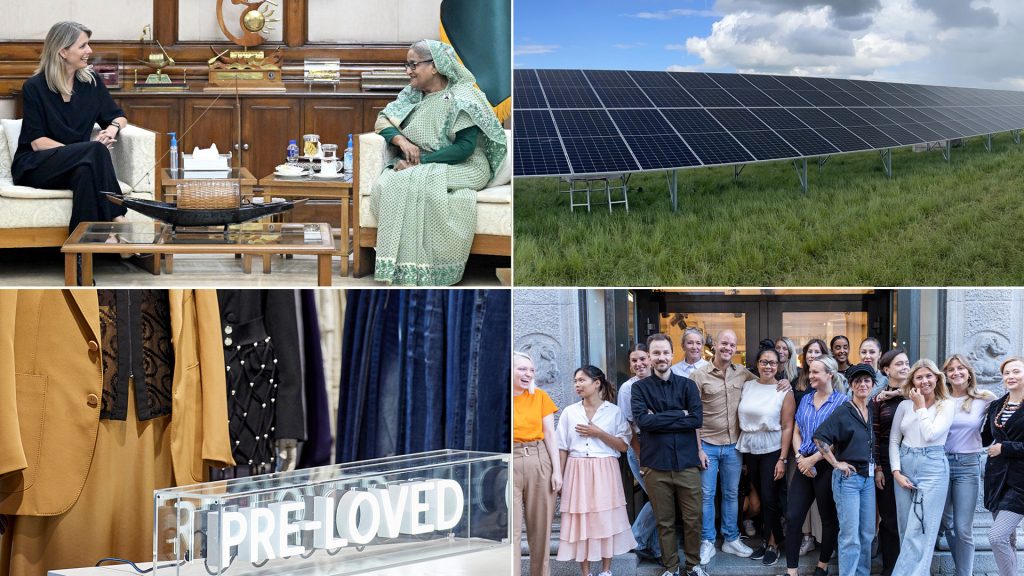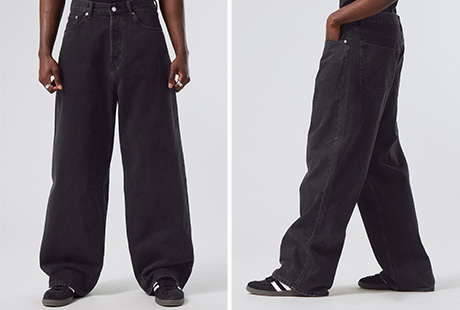Case study
Background
In some production countries, even though suppliers are coupled to the grid, electricity supply can be unreliable, costly and powered by fossil fuels.
Rooftop solar makes use of space that is otherwise wasted and gives factories a reliable supply that will help them save on their energy bills over the lifetime of the panels and cut their greenhouse gas (GHG) emissions.
The projects
Through direct financial support and financing at favourable terms, our Green Fashion Initiative (GFI) has supported several of our supplier factories to switch to onsite renewable power generated by roof top solar panels.
Seduno Hong Kong Rise Sun, Vietnam
This supplier makes jersey fabric for several of our brands. It’s a highly automated factory with many machines running on electricity, so switching to renewable energy is key to reducing emissions. With support from GFI, Seduno has installed a 2.5 MW solar array on the roof and is exploring other ways to increase their access to renewable electricity. GFI also supported new and upgraded biomass boilers at the factory.
Yati Oversees, India
Yati supplies home textiles to our brands. With support from GFI, the modest-sized factory has installed a 1MW rooftop solar array that will cover around 80% of its electricity demand.
Jiangyin Benda Garment, China
This supplier makes jersey fabric for our products. A 1.2 MW rooftop solar array was installed two years ahead of schedule thanks to support from GFI. The project also included a water recycling system with heat recovery that reduces the amount of energy needed to heat water for dying fabric and other production processes.
Wuxi Shilead, China
Wuxi Shilead supplies jersey material to our brands. With support from GFI the factory added 4.8MW of rooftop solar to its existing 900KW and now 40% of its energy needs is supplied by onsite renewable electricity. The project also included a wastewater heat recovery system that pre-heats water for production processes and reduces steam consumption.
Outcomes
All projects are now operational. In total, the projects will save around 15,000 tonnes of GHG each year.
- Seduno Hong Kong Rise Sun in Vietnam came online in February 2023 and is expected to save 4,000 tonnes of GHG emissions each year.
- Yati Oversees in India came online in September 2023 and is expected to save 225 tonnes of GHG emissions.
- Jiangyin Benda Garment in China came online in May 2023. Combined, the solar array and heat recovery system is expected to save 3,800 tonnes of GHG annually. While the water recycling system will save 400 million tons of freshwater each year
- Wuxi Shilead in China came online in January 2024. Combined, the solar array and heat recovery system is expected to reduce annual GHG emissions by over 7,000 tonnes and reduce steam consumption by 15%.
About our Green Fashion Initiative
Lack of access to affordable capital is the main barrier factories face when they want to invest in decarbonisation projects. Our Green Fashion Initative (GFI) offers financial support to reduce the burden of investing in energy efficiency measures or new equipment.
Investments made through GFI will help us achieve our Science Based Targets to reduce greenhouse gas emissions by 56% by 2030 and by 90% by 2040, against a 2019 baseline.



